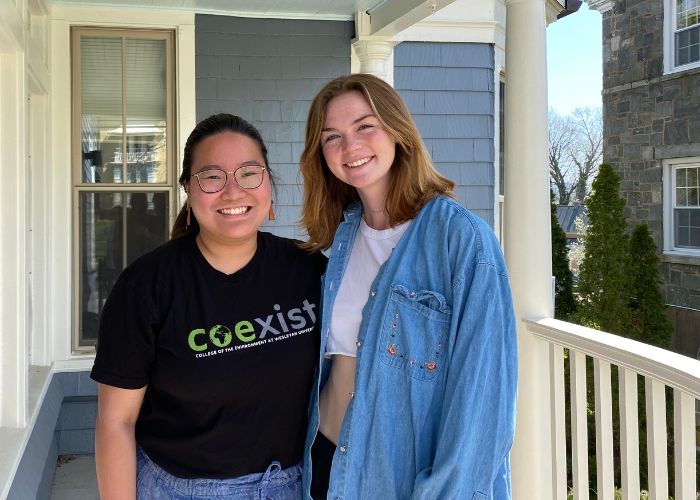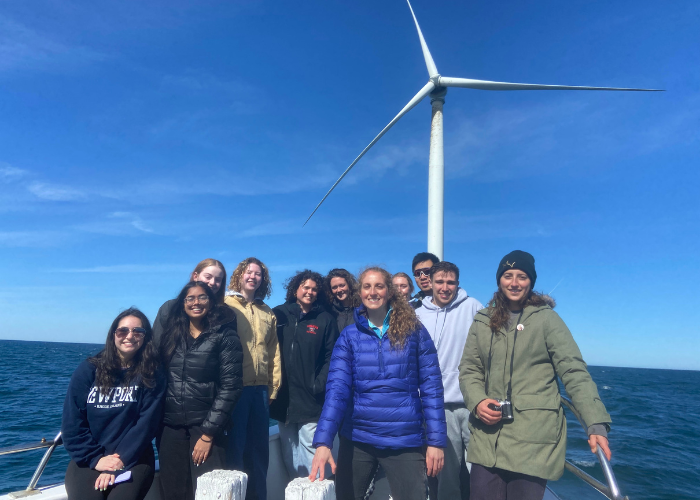 The Robert F. Schumann Foundation has generously awarded the College of the Environment (COE) a 5-year, $2-million grant to focus on the areas of food security, environmental justice, and sustainability. The Schumann Institute of the COE will be adding new positions to enhance teaching, research, and community engagement; building a network of local community organizations that specialize in the areas of food security, environmental justice, and sustainability; providing opportunities for Wesleyan environmental studies students to work with these organizations to help their efforts; and creating a “pipeline” of professional training for graduate students, post-doctoral fellows, and professors of the practice so that they will have the skills and knowledge needed to contribute importantly when they leave Wesleyan. Enhanced courses; student immersion in community engagement projects; student internships; campus and community seminars, symposia, and workshops; scholarly output on environmental issues; and other related activities will all be supported with the grant.
The Robert F. Schumann Foundation has generously awarded the College of the Environment (COE) a 5-year, $2-million grant to focus on the areas of food security, environmental justice, and sustainability. The Schumann Institute of the COE will be adding new positions to enhance teaching, research, and community engagement; building a network of local community organizations that specialize in the areas of food security, environmental justice, and sustainability; providing opportunities for Wesleyan environmental studies students to work with these organizations to help their efforts; and creating a “pipeline” of professional training for graduate students, post-doctoral fellows, and professors of the practice so that they will have the skills and knowledge needed to contribute importantly when they leave Wesleyan. Enhanced courses; student immersion in community engagement projects; student internships; campus and community seminars, symposia, and workshops; scholarly output on environmental issues; and other related activities will all be supported with the grant.
Read more



 The Robert F. Schumann Foundation has generously awarded the College of the Environment (COE) a 5-year, $2-million grant to focus on the areas of food security, environmental justice, and sustainability. The Schumann Institute of the COE will be adding new positions to enhance teaching, research, and community engagement; building a network of local community organizations that specialize in the areas of food security, environmental justice, and sustainability; providing opportunities for Wesleyan environmental studies students to work with these organizations to help their efforts; and creating a “pipeline” of professional training for graduate students, post-doctoral fellows, and professors of the practice so that they will have the skills and knowledge needed to contribute importantly when they leave Wesleyan. Enhanced courses; student immersion in community engagement projects; student internships; campus and community seminars, symposia, and workshops; scholarly output on environmental issues; and other related activities will all be supported with the grant.
The Robert F. Schumann Foundation has generously awarded the College of the Environment (COE) a 5-year, $2-million grant to focus on the areas of food security, environmental justice, and sustainability. The Schumann Institute of the COE will be adding new positions to enhance teaching, research, and community engagement; building a network of local community organizations that specialize in the areas of food security, environmental justice, and sustainability; providing opportunities for Wesleyan environmental studies students to work with these organizations to help their efforts; and creating a “pipeline” of professional training for graduate students, post-doctoral fellows, and professors of the practice so that they will have the skills and knowledge needed to contribute importantly when they leave Wesleyan. Enhanced courses; student immersion in community engagement projects; student internships; campus and community seminars, symposia, and workshops; scholarly output on environmental issues; and other related activities will all be supported with the grant.